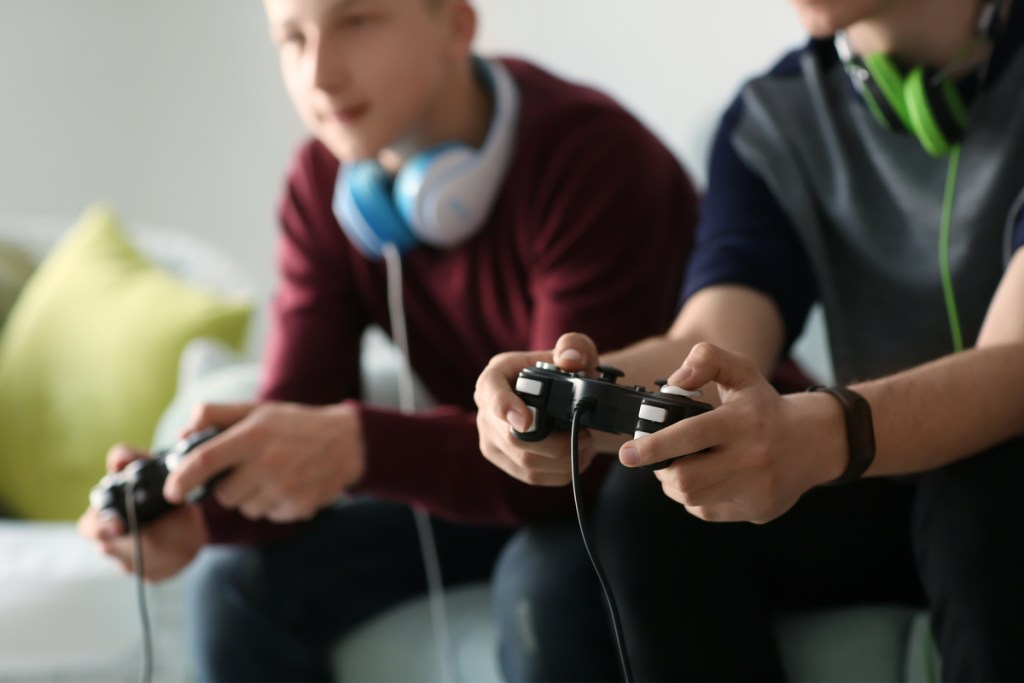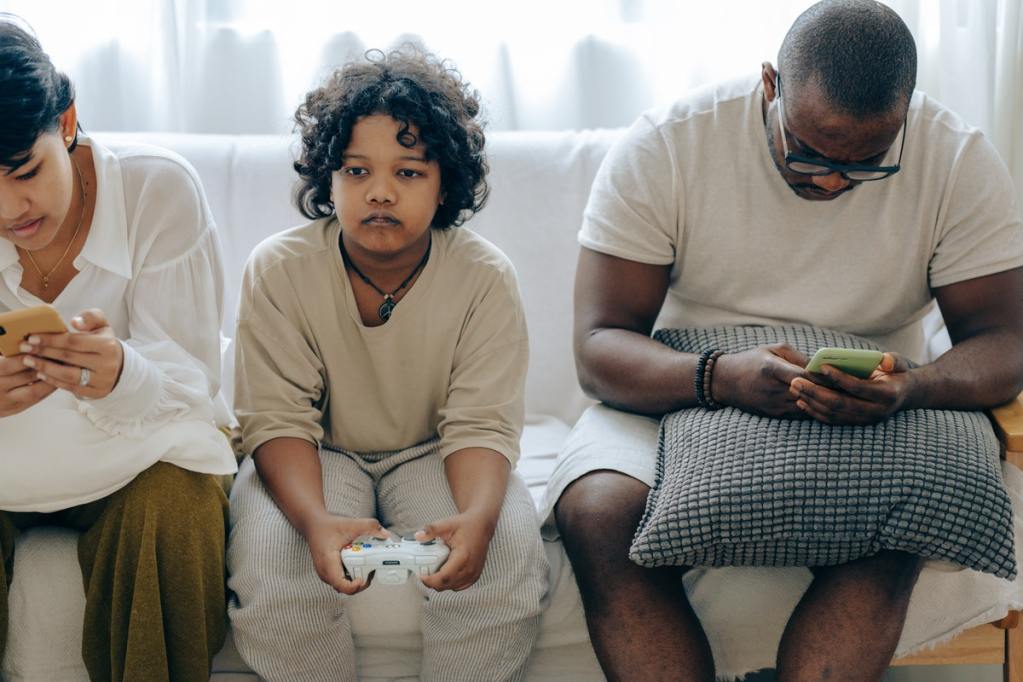Parents have never been more concerned with screen time, and video games are a large part of that. If you have a teen who is constantly online, you may be worried about video game addiction. Gaming addiction is a difficult issue to address, and even more difficult to diagnose. Video games give kids an outlet to play with friends and make new ones, but it can become worrying when they don’t seem to know when to put the controller down. Defining when loving video games crosses into a disorder is tricky, but there are criteria and gaming addiction symptoms to look for.
Screen time increased by nearly 500% during the pandemic, which means you may be naturally concerned about your own teenager’s screen time. How much is too much and what are the concerning behaviors to watch out for besides the number of hours? We’ve looked at the diagnostic criteria and scientific studies so you can figure out what to worry about, what not to worry about, and what you can do if you think your teen has an addiction.
What is gaming addiction?

According to the World Health Organization’s (WHO) International Classification of Diseases, “gaming disorder” is defined by three criteria:
- Impaired control over gaming
- Increasing priority is given to gaming over other activities to the extent that gaming takes precedence over other interests and daily activities
- Continuation or escalation of gaming despite the occurrence of negative consequences
Basically, once gaming feels out of control, it becomes a disorder. The WHO further adds to the definition above by saying that for gaming disorder to be diagnosed, the pattern of behavior “must be of sufficient severity to result in significant impairment in personal, family, social, educational, occupational or other important areas of functioning and would normally have been evident for at least 12 months.” So, it also needs to negatively impact someone’s life for at least a year to be diagnosed.
You certainly don’t want your teen’s life to be negatively affected for a year before taking action, so let’s look at what symptoms to watch for. These symptoms may develop before the gaming activity becomes diagnosable.
Gaming addiction symptoms

If you are concerned your teen is playing video games too often, these are the signs to look for to see if it could be a video game addiction.
- Experiencing withdrawal symptoms when they can’t play video games, like irritability
- Preoccupation with video games to the point that it concerns you
- The need to spend more and more time gaming over time
- Losing interest in other activities over time to spend more time gaming
- Lying to you about the amount of time spent gaming
- Using gaming to escape negative emotions
- Inability to stop a gaming session or not to start a gaming session
- Gaming negatively impacts areas of life like social, sleep, mental health, and academics
- Inability to see gaming is negatively impacting life
- Neglecting self-care like hygiene or eating
- Acting depressed or irritable
- Missing sleep to game
- Isolating to game
- Spending money the teen doesn’t have on games
It’s especially concerning the longer these symptoms go on and the more they increase. Talk to your teen and your teen’s pediatrician right away when you notice these symptoms.
Effects of gaming addiction

Playing video games for too long overstimulates teens’ brains, which can produce too much of the hormone cortisol. This chronic stress can change the brain over time. Addiction to video games can prime the brain for other kinds of addictions, like substance abuse as well.
A six-year study published in 2020 of pathological video game players from age 15 into early adulthood showed “higher levels of depression, aggression, shyness, problematic cell phone use, and anxiety.” There are also physical health issues due to the sedentary nature of playing video games.
Some of the top possible effects of excessive video gameplay include:
- Poor emotion regulation
- Difficulty paying attention
- Decreased levels of compassion
- Decreased levels of creativity
- Depression
- Irritability
- Anxiety
- Increased weight
- Insomnia
- Increased risk of ADHD
- Desensitization to violence
- Eye strain
- Neck or back problems
- Violence
- Loss of social skills
- Impulsive actions
When to seek professional help

Parents may want to consider seeking professional help for their teen’s video game addiction if they notice it significantly interfering with their daily life, responsibilities, and overall well-being. If you notice any of the above-listed symptoms but your teen just won’t, or can’t, step away from the screen, you may need outside guidance.
A professional may be needed if your teen isn’t able to self-regulate their playing time or if you notice defensive behavior when confronted about it. If these signs persist and negatively impact their teen’s mental, social, or physical health, seeking guidance from a mental health professional experienced in gaming addiction can help them regain balance.
What can I do to help with gaming addiction?

Setting boundaries on gaming time is an important first step to curbing addiction. Teens will resist this and you may need professional help like therapy to help. If teens use gaming as a way to escape negative emotions, they will need to learn new healthy coping strategies, which will take time, effort, and help.
Signing your teen up for a sport or another new activity to occupy their time and mind instead of gaming may help. Have patience and compassion as you support your teen on a path to a healthier lifestyle.




